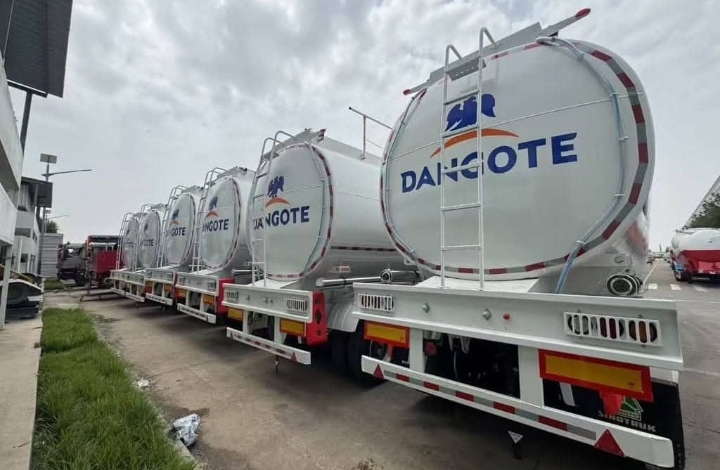Depot marketers have raised serious concerns over Dangote Petroleum Refinery’s newly announced strategy to begin direct distribution of petrol and diesel across Nigeria starting August 15. Members of the Dangote Marketers Group — a coalition of licensed depot operators — are calling the move a “death sentence” to their role in the downstream oil sector.
The marketers, who traditionally serve as the critical link between depot owners and fuel station operators, warn that Dangote’s bypassing of middlemen threatens not only their jobs but the broader ecosystem of financing, logistics, and haulage services that sustains the sector.
“The supply chain is dead,” declared one marketer in a heated group chat. Others described the development as “an evolution masked as a revolution,” expressing fears that the shift could spark a wave of business closures and job losses.
Independent marketers typically provide credit lines, manage transportation, and facilitate depot loading for filling station owners — services that will be rendered obsolete under Dangote’s new integrated system, which includes 4,000 CNG-powered trucks, direct-to-customer deliveries, and flexible payment options for bulk buyers.
“Now imagine manufacturers boycotting middlemen and going straight to end users,” said a marketer identified as Black Bishop. “End users will receive sealed, tamper-proof products delivered on time. All hell is about to break loose,” added Mide Leo.
Another member, Mide Loe, recounted how a client who owns 15 haulage trucks was left speechless by the announcement. “His silence was deafening,” said Joe, another group participant. “Businesses will fold. Homes will break. Fathers and mothers will be rendered jobless. This is sad.”
Frustration also mounted over what some perceive as a creeping monopoly. “Everyone dey collect — depot owners, importers, marketers, truckers, PTD, baranda,” lamented Peter Akande.
Marketers questioned the silence of regulators like the Nigerian Midstream and Downstream Petroleum Regulatory Authority (NMDPRA) and the now-defunct Petroleum Equalisation Fund (PEF), which had developed the Aquila platform to track product movements. “What are the regulators doing? Someone should provide rules of the game,” said Stephen, calling for policy intervention.
“This isn’t a revolution. It’s the beginning of a one-man show in the downstream sector,” another member warned. “May Nigeria succeed, but the market must remain competitive.”
Critics are also pressing for clarity on pricing. “Let’s ask him how he intends to cover the cost of transportation. Is it embedded in the product pricing? Will it lead to a price increase?” asked Black Bishop, voicing a concern shared by many.

